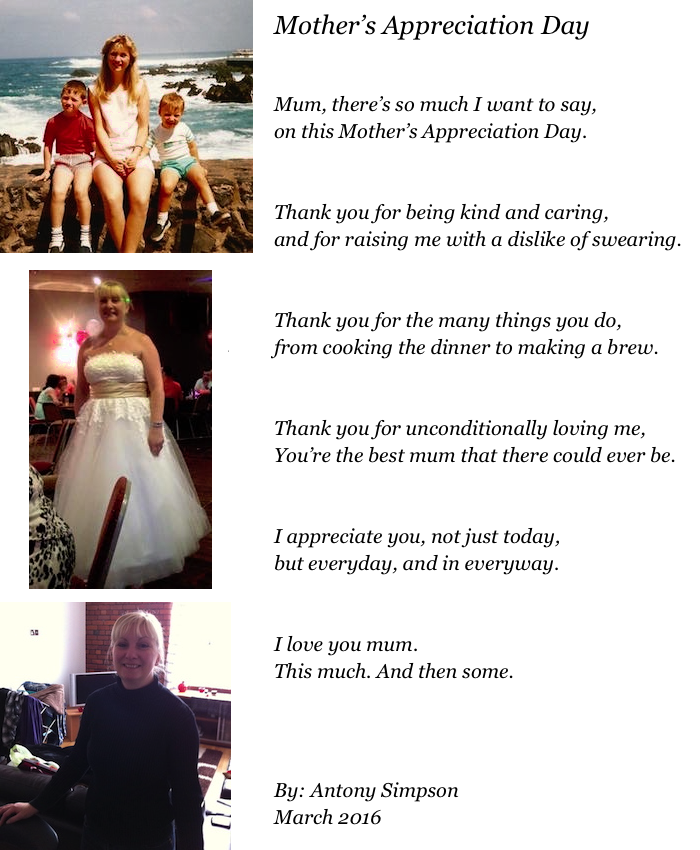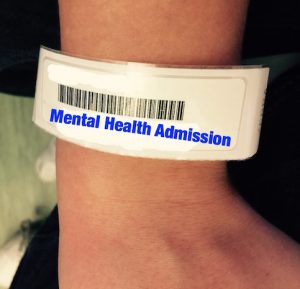| I’ve wanted to write this post for a long time. I’ve started it countless times, looking at adversity from many different angles. In the end, I decided that the best way to express what I want to say about adversity and overcoming adversity is through a little tale.
Growing up I had difficulties with reading and writing because of Dyslexia and Dyspraxia. At sixteen years old, I had a reading and comprehension age of fourteen. I remember when I was younger, having to read paragraphs two or three times to get the meaning of the words. The thought of reading a book at this age, was like the thought of climbing a mountain. |
I couldn’t write my name until I was ten years old. I understood what we were taught in classes, but just couldn’t write it down on paper in an organised and structured way. I got very good at talking and verbal presentation to compensate.
Fast forward to now. I have overcome adversity in relation to reading and writing. I’m always reading at least ten books at any one time. I read nineteen books last year (see Book List 2015) and I read twenty-eight books the year before that (see Book List 2014). I regularly get sent books by publisher’s publicists to read and review. Thankfully I no longer need to re-read paragraphs two or three times to understand them. I write creatively on a regular basis. I’ve recently published a short story entitled Soulmates and write for The Gay UK.
In addition to the above: I have done well academically. I have been to university twice and about to go back to university to complete a further module. I have gained a HE Diploma in Children’s Nursing and a Honours Degree in Nursing, graded at a 2:1.
The reading, the writing and the university wouldn’t have been possible without overcoming adversity. But what’s really interesting is that I’ve learned some fundamental things that were required in order for me to overcome adversity. These included:
- Grit or determination. Not giving up. Continuing to read and write, even when I felt like I was banging my head against a brick wall.
- The support of others. My mum fought the education authorities to get the professional help I needed to learn to read and write. Teachers, Teaching Assistants and Volunteers all spent countless hours teaching me to read and understand what I was reading. My mum fought the health authorities to get the practical support from a brilliant and professional Occupational Therapist. And of course my mum helped and supported me in so many other ways: spending time reading with me, taking me to my Occupational Therapist appointments, just listening when I needed to vent my frustration, etc.
- Practice. Repetition is the key to learning and the way of getting good at anything. Think of when you learned to ride a bike as a child.
- Being driven by my love of literature. Even with my difficulties in reading and writing, I used to be captivated by the stories my mum would read to me at bedtime. By how words could ignite my imagination and make me feel very real emotions.
- People having belief and faith that I could overcome my reading and writing difficulties. This includes both family and friends.
- Believing in myself, or at least hoping that I could overcome these reading and writing difficulties.
I would imagine that these fundamental things are essential for anyone trying to overcome adversity. I wanted to share these thoughts, for anyone currently struggling with adversity. If you have overcome adversity, how did you do it? What did you need in order to overcome adversity? Leave a comment below.
Blog soon,
Antony

| Recently, I had to take an unexpected what-I-call Life Hiatus. My mental health had gradually deteriorated to the point were I was having severe and erratic mood swings. Everyone’s mood fluctuates throughout the day, but not to the extremes I was experiencing.
People talk about good and bad days with depression. I was having good, bad, okay or mixed mood states lasting between 45 minutes to 4-6 hours. These mood swings were unpredictable with no pattern. They didn’t have triggers and were not related to a critical inner voice. These mood swings were torturous. See My Mood Swing Table below for details of what these mood swings were like. |
I felt desperate for the mood swings to end. To the point of having suicidal ideation and a clear plan of action.
I had thought that I was objective about my mental health. But because the mood swings had gradually got worse I hadn’t realised how unwell I was. I sought help because three people close to me said that I wasn’t well. Luckily I had these people around me and knew that could trust them, even if I couldn’t trust myself.
So I went to my local A&E. I was assessed by a Mental Health Nurse and together we decided that I needed admission. I stayed on the A&E Ward overnight, whilst I waited for an available bed on a mental health ward.
The next evening, I was transferred to a mental health ward. On arrival at the ward, my possessions were searched and Nursing Staff took my shoe laces, belt, hoodie (due to cord in hood), phone charger, lighters and medication. The ward layout was a square shaped main corridor with dormitories, individual rooms and many other rooms that where behind locked doors.
The first night was frightening. Everything about the place was frightening. The environment. The locked doors. The routine. The rules I hadn’t been told. The other patients. The staff. I even found my own mood swings frightening. At one point, I was physically shaking uncontrollably due to the fear and anxiety.
I was assessed by a Psychiatrist and commenced on 10 minute observations. It would be a few days before I was reviewed. At the time, I couldn’t understand why they appeared to be doing very little to help me and my state of mind. But afterwards, I realised that they had wanted to observe me and see my mood swings for themselves.
The Consultant Psychiatrist diagnosed me with a ‘Mood Disorder.’ Here is a definition of a ‘mood disorder:’
mood disorder –
noun
a psychological disorder characterized by the elevation or lowering of a person’s mood, such as depression or bipolar disorder.(From: Google, Last Accessed: Friday 27th November 2015.)
The Consultant Psychiatrist informed me that they were reluctant to give a more specific diagnosis on the first admission to a mental health ward. I told the Consultant Psychiatrist that I didn’t care what they called it, as long as they gave me some medication that worked. I explained that with some stability in mood, I could make further psychological and behavioural changes to help myself to get well and stay well.
I was started on Quetiapine, an antipsychotic and mood stabiliser medication. It was to help to take the edge off my mood swings and give me some stability of mood. I was also started on Mirtazapine, an antidepressant. This was to help to manage the depression/low moods.
Overall, I was an in-patient on the mental health ward for about 12 days. During this time, my Mum and good friend Steve were superb. They took over all my responsibilities and made sure that everything in the outside world was sorted, meaning that I didn’t have to worry about anything – apart from getting better.
I will never be able to thank Mum and Steve enough for what they have done for me, but I have repeatedly thanked them anyway. I will never be able to explain how much I appreciate them for everything that they have done for me, but I have tried to explain anyway.
I feel that I got to this crisis point because I waited so long to get referred to and assessed by Community Mental Health Services. It feels like Community Mental Health Services are designed to keep people out, rather than let people in to get the help and support that they need and in most cases are asking for. This is probably because of a lack of resources in mental health services. But this really doesn’t help and support people with mental health problems to get and stay well.
I have been discharged from the hospital and am and engaged with Community Mental Health Services. Recovery will be a slow and progressive one. I am taking the medication as prescribed, attending appointments with community services and setting myself daily goals that I am currently achieving.
Write soon,
Antony
| Physical Symptoms |
|
|
|
|
| Mental / Cognitive Symptoms |
|
|
|
|
| Emotional Symptoms |
|
|
|
|
| Behavioural Examples |
|
|
|
|

Recently I’ve really not been well. Here is the saga thanks to my body that seems to be falling apart:
The Clinical Depression
Earlier in the year I struggled with severe clinical depression, before getting myself into Recovery. But this wasn’t to be the last of my health problems.
The Recurrent Dental Abscesses
Over the past few months I’ve had recurrent dental abscesses in a wisdom tooth. After several courses of antibiotics and regular Paracetamol and Ibuprofen (painkillers), the tooth had to be extracted.
Then I got a dry socket infection. It was the weekend so had to see an Emergency Dentist who prescribed me more antibiotics and recommended regular painkillers. Luckily this time the antibiotics worked and touch wood (touches bedside table), I’ve had no more dental problems.
The Moment of Panic
Next my blood sugars were off, I started to feel exhausted and generally terrible without any trigger. I went into a spiral of panic, thinking that I was getting ill with depression again. This panic only served to make me feel worse. But then a lump appeared.
The Lump – Return of the Jeff
A lump appeared on my right buttock. A bacterial infection, that I’ve had several times before. I always feel terrible before it appears.
I’ve had this lump enough times to name it Jeff and to tell close family and friends that I was going to stick some goggly eyes on it and draw a mouth using a marker pen.
I went to see by GP about Jeff. As usual I was given antibiotics. By this point, I was beginning to feel that I was living on antibiotics. But as always, I took them religiously.
Never one to miss an opportunity to get a laugh at my own expense, I spent several hours creating this on my iPad:
I shared it on Facebook, forgetting that most of my Facebook friends don’t know about Jeff, so wouldn’t get the reference. But those that did laughed, so it was totally worth creating this piece of artwork.
The Hospital Admission – For Emergency Surgery
| After five days on antibiotics Jeff had only seemed to get bigger – looking like he was the size of a gold ball. I was unable to sit, stand or lie down comfortably for any length of time. So I went back to see my GP.
My GP said that I needed to see a Surgeon immediately and referred me to the Surgical Team at my local hospital. He gave me a two week sick note and told me that I’d be off work for at least the next fortnight. I went to hospital and was admitted to the surgical ward. I was reviewed by the Surgeon and Anaesthetist. It was decided that they would operate on me first thing in the following morning, with me being first on the emergency list on the account of having type 1 diabetes and having to fast. |
I went up to theatre about 9am in the morning. I was put under general anaesthetic and next thing I knew I was in recovery and in a lot of pain. Thankfully I had been prescribed painkillers which were administered quickly.
After I had eaten, drank and peed I was allowed to go home with mum. She had to observe me for the rest of the day.
Wound Healing
Initially, I had to have the wound packed on a daily basis by the District Nurses. Then as the wound has got smaller, the District Nurses have been packing it every other day.
Thankfully, so far, touch wood (touches bedside table), there have been no complications such as infection at the wound site or accidental tearing of the wound.
My Experience of NHS Care
The NHS care that I have received has been superb. My GP has been exceptional. The Dentist’s have been helpful and supportive. All of the hospital staff (including the Surgical Team, Nurses, Porters and other staff) were great and efficient. Special mention must must be made of the Anaesthetist who looked after me. I felt that he genuinely treated me like a member of his family. All of the community service staff have been fantastic too.
Thank you to all the staff who have looked after, supported and cared for me this year.
I know the NHS is not perfect. But my recent experiences have been perfect.
Tough Year
2015 has been a really tough year for me health-wise. But Autumn is upon us and is a season of change. Leafs will change to bright colours of red, yellow and orange before falling from the tress. I hope my ill health falls from the tree of life, like one of these leafs and that it leads to a sustained period of good health.
Take care & I will write soon,
Antony







